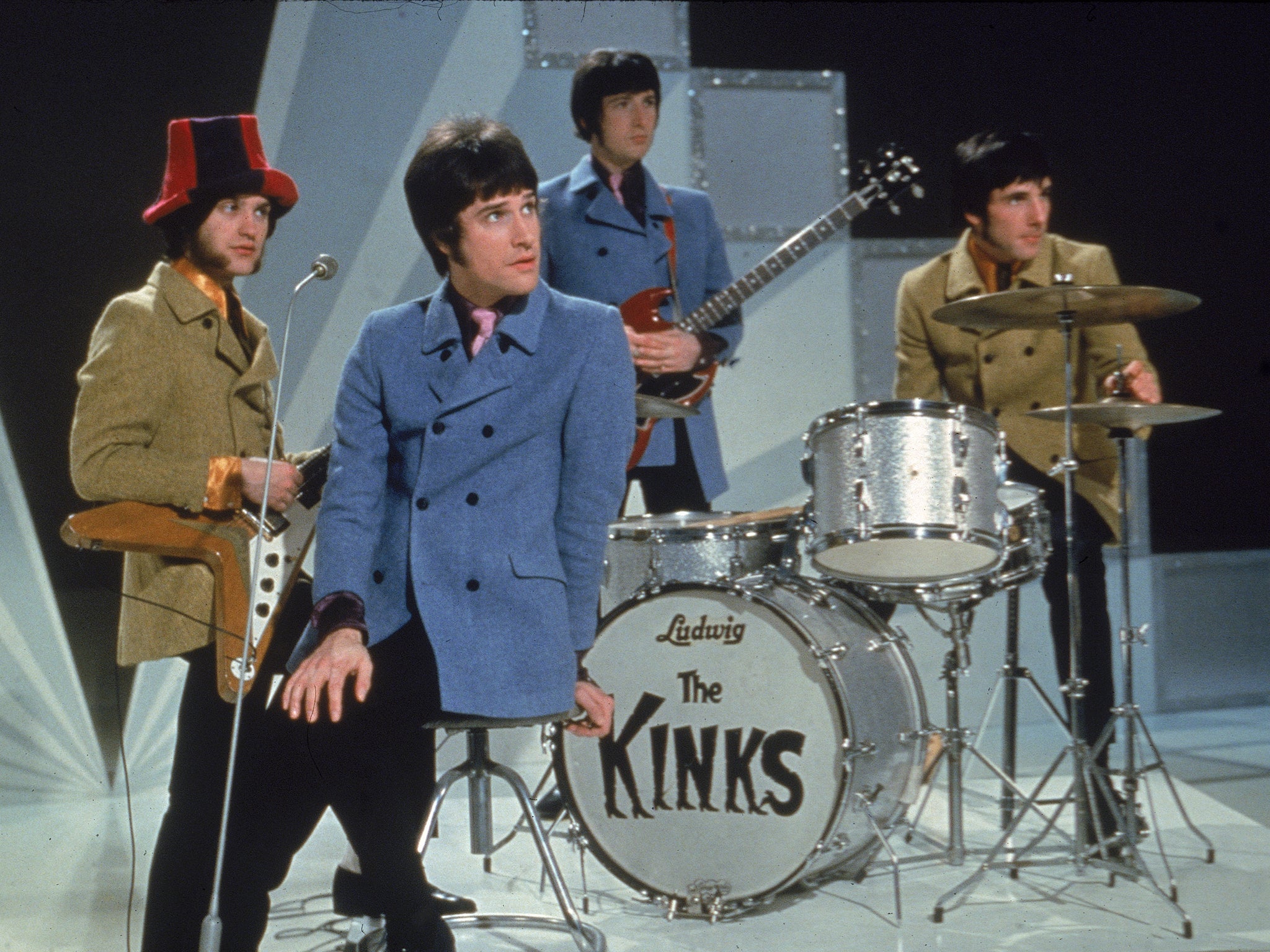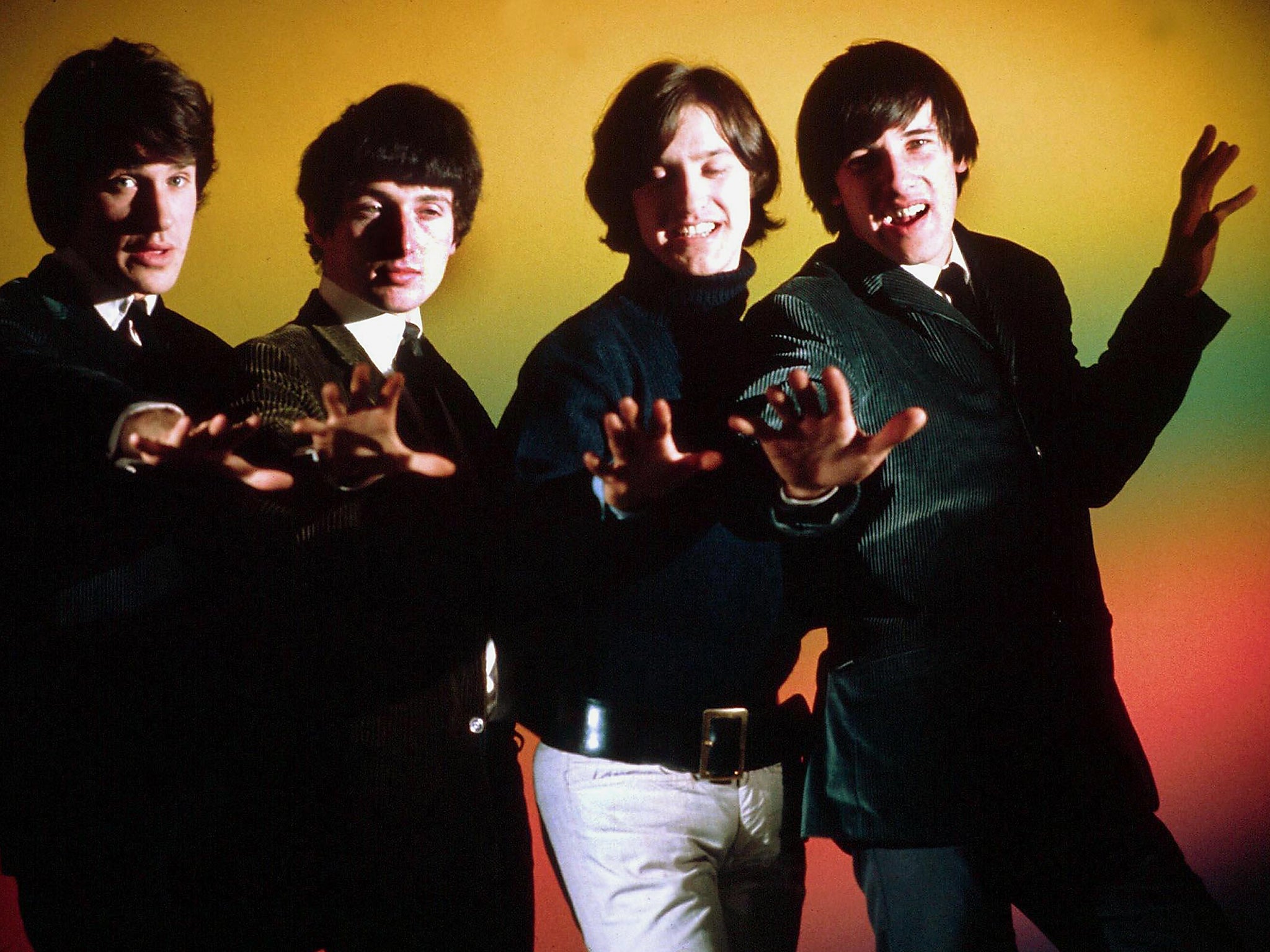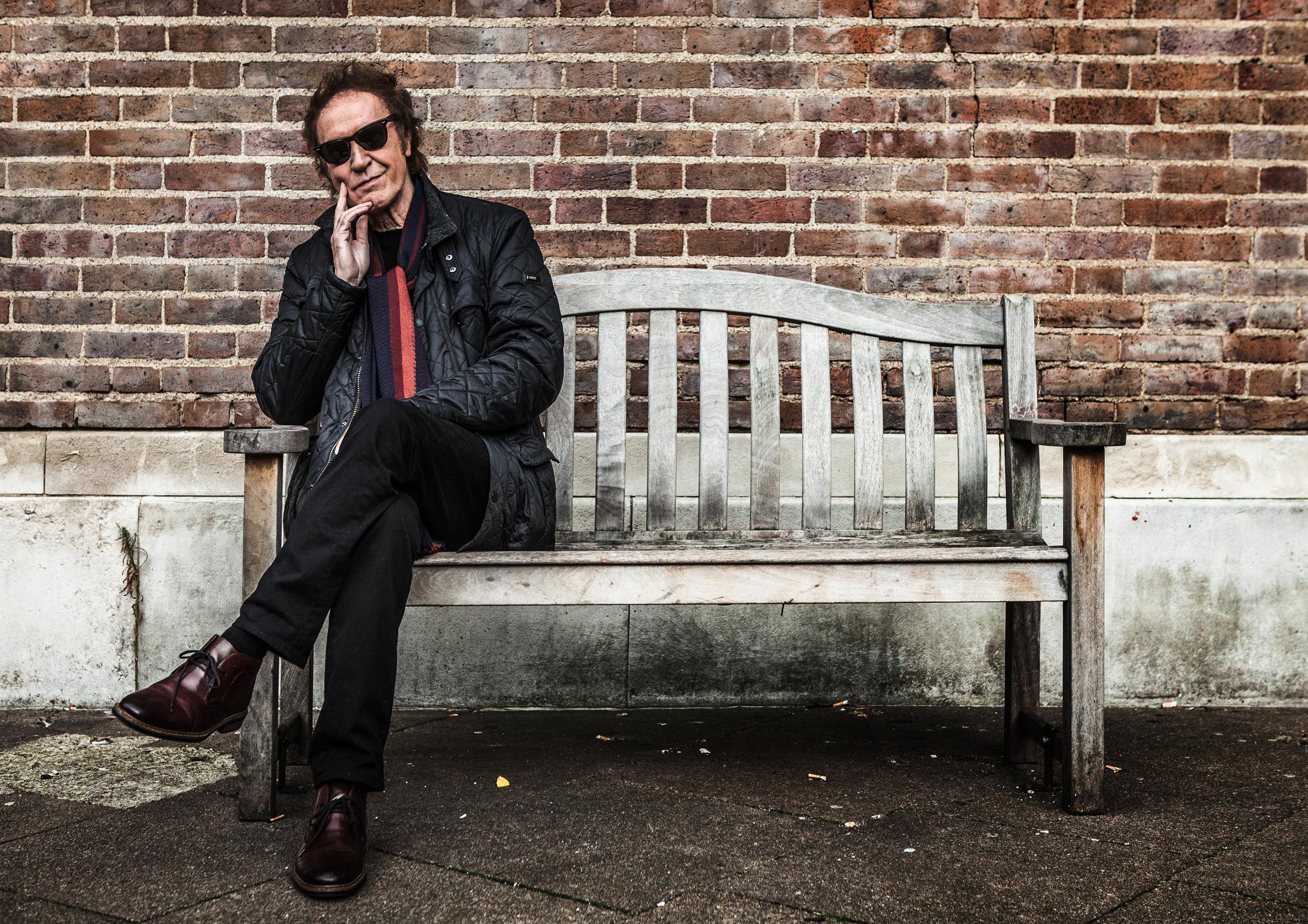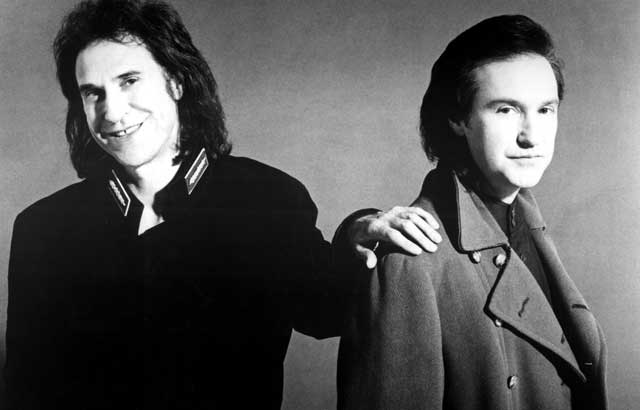The Kinks: Ray and Dave Davies’s 20 greatest songs, from Autumn Almanac to Lola
As ‘Lola’ turns 50 and The Kinks celebrate with ‘Lola Day’, Graeme Ross ranks the band’s best work

There’s no record of Romulus and Remus, or Cain and Abel, ever forming a band. If they had, the discord between those brothers would not have come close to matching that of pop’s greatest sibling rivalry, Ray and Dave Davies. The fractious relationship between the north London-born duo makes the Gallagher brothers’ antics look like playground spats.
But what music the brothers made as the driving forces of The Kinks, one of the most important and influential bands in music history. With drummer Mick Avory and original bassist Pete Quaife completing The Kinks’ classic line-up, Ray’s wonderful, literate songs – many powered by Dave’s revolutionary guitar – soundtracked the Sixties and earnt their composer the sobriquet “the poet laureate of pop”.
An unbroken run of hits from 1964’s epochal “You Really Got Me” to 1970’s daring, risque “Lola” established The Kinks reputation as the greatest singles band ever. Subsequently, the band would release a series of remarkable concept albums, unappreciated for years, but now hailed as classics in their own right.
To mark the 50th anniversary of “Lola”, The Kinks have declared 12 June as “Lola Day”, for which I have listed their 20 greatest songs.
20. “Come Dancing” (1982)
In 1957, after gifting Ray a guitar for his 13th birthday, beloved elder sister Rene died while dancing at the Lyceum Ballroom. This very personal song celebrates Rene’s love of dancing, while mourning the decline of Britain’s dance halls. It returned The Kinks to the top 10 after a 13-year absence.
19. “Strangers” (1970)
Dave Davies’ songwriting smarts remains The Kinks’ best kept secret, and the the poignant and heartfelt “Strangers” is his finest composition. The line, “We are not two, we are one” could be taken as a reference to his brother, but actually refers to a friend who died of an overdose.
18. “Don’t Forget to Dance” (1983)
A lonely, ageing woman is the subject of this companion piece to “Come Dancing”. Forgive the tinny Eighties production and be moved by the song’s wonderful exercise in nostalgia and compassion as Davies exhorts, “Don’t forget to dance/ Don’t forget to smile.”
17. “I’m Not Like Everybody Else” (1966)
The B-side of “Sunny Afternoon” is a raucous anthem of independence originally intended for The Animals. Very punky in its attitude to non-conformity and featuring a terrific Dave Davies vocal, it rounded out their live shows perfectly.
16. “The Village Green Preservation Society” (1968)
The title track of The Kinks’ masterful sepia-tinged concept album evocatively celebrates an England that may never have existed. Ray enshrines old values and traditions he believes are worth saving (“God save little shops, china cups and virginity”) while noting that progress isn’t all it’s cracked up to be.

15. “Till the End of the Day” (1965)
Powered by a classic Dave Davies riff, the last full-on rocker of the Kinks glorious run of hit singles has influenced scores of bands. It is undeniably cut from the same cloth as “You Really Got Me” and “All Day and All of the Night”, and is therefore fabulous.
14. “Tired of Waiting for You” (1965)
With a laconic beauty, The Kinks’ second No 1 demonstrated how quickly Ray Davies was maturing as a songwriter. Dave Davies’ work here is more melodic than the proto-punk riffs of their breakthrough hits, but no less effective, and Ray’s weary vocal is just perfect.
13. ”Celluloid Heroes” (1972)
This small masterpiece reflects Ray’s love of Hollywood’s golden age, name-checking icons such as Garbo and Monroe in a poignant study of the real person behind the fantasy on the big screen.
12. “Dedicated Follower of Fashion” (1966)
Ray Davies, pop music’s foremost social commentator and a self-confessed outsider, was ideally placed to observe the foibles of the Swinging Sixties. He viewed the Carnaby Street elite with disdain, and this brilliant send up of a London Dandy desperate to stay in style hilariously nailed the narcissism of the times.
11. “See My Friends” (1965)
Paul McCartney envied this ahead-of-its-time single but Ray was crushed by its comparative failure. The heavy riffs of “You Really Got Me” and “All Day and All of the Night” were replaced by a sitar-like drone, achieved by feedback, demonstrating a strong Eastern influence that predated the Beatles own excursions into Indian music.

10. “Where Have All the Good Times Gone” (1965)
The B-side of “Till the End of the Day” both yearns for, and condemns those who glorify the past. And with lines like “Guess you need some bringing down/And get your feet back on the ground” Davies warned that even as the Sixties swung, the piper would exact its toll.
9. ”Autumn Almanac” (1967)
This top-three single is a wonderful tribute to the most beautiful season, and to normal everyday British life. Roast beef, rustling leaves and joy of joys, football on a Saturday, are just some of the seemingly mundane pleasures celebrated, on a song as wonderfully mellow as autumn itself.
8. ”A Well Respected Man” (1965)
Peerless satire from Ray Davies here marked a pronounced stylistic shift in his songwriting. He trained his jaundiced eye on the prototype social climber, with England’s class divide also in the firing line. It was the first of many acutely observed character studies, and offered hints of the music hall influence that would permeate Ray’s future work.
7. “All Day and All of the Night” (1964)
Taking breakthrough single “You Really Got Me” as its template, the follow-up was even rawer, sexier and almost as successful. In 1964, no one was making music quite like this and its influence is clear on the Doors “Hello, I Love You”. You can bet Pete Townsend was listening closely too.
6. ”Days” (1968)
Surprisingly omitted from The Village Green Preservation Society album, the song has a wistful elegance and longing for the past that would have fitted perfectly with the album’s themes. “Days” has since become a beloved anthem, with Kirsty MacColl’s 1989 version rivalling the original.
5. ”Sunny Afternoon” (1966)
The Kinks’ third and final No 1 soundtracked the golden summer of 1966, when England lifted the World Cup and London was the place to be. “I wanted to write something that we could sing in the pub,” Davies said of this sardonic tale of a jaded aristocrat. You like to think that when the pubs open again, that’s exactly what will happen.

4. “Dead End Street” (1966)
“Sunny Afternoon” encapsulated all the confidence and optimism of Britain in 1966’s halcyon summer, however Ray was acutely aware that beneath the glossy veneer there was an entirely different backstory of poverty, depravation and despair. Displaying an incredible degree of humanity and insight for one so young, Ray articulated his feelings on “Dead End Street” to produce a brilliantly observed piece of social commentary.
3. ”Lola” (1970)
Based on several real incidents about a naive young man’s encounter with a transvestite, “Lola” long ago transcended its origins to become, like its composer, a National Treasure. Dear old Auntie Beeb got all excited about the mention of Coca-Cola in the lyrics but failed to look beyond the ambiguity of the lyrics. The public lapped it up and only Elvis Presley’s “The Wonder of You” prevented “Lola” from returning The Kinks to the top of the charts.
2. “You Really Got Me” (1964)
Seventeen-year-old Dave Davies applied a razor blade to his amp, creating the infinitely influential scuzz on the riff that drives this primal, almost unbearably exciting record. In a little over two minutes, The Kinks changed the musical landscape forever, and on a record that proved to be the launch pad for heavy rock.
1. “Waterloo Sunset” (1967)
“It puts people into a world,” Ray once said of his greatest song, and that world was so personal to him that initially he felt compelled to keep it to himself. Fortunately for humanity, he didn’t and this love letter to the dreams and aspirations of a generation in an almost mythical time and place, is one of the most beautiful, deathless songs ever written.
Join our commenting forum
Join thought-provoking conversations, follow other Independent readers and see their replies
Comments
Bookmark popover
Removed from bookmarks